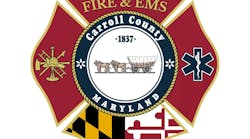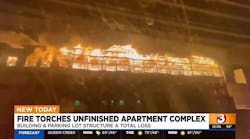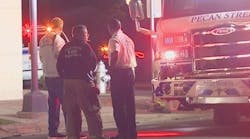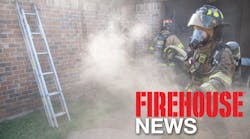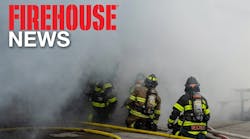DENVER -- Fire Rescue International, the educational exposition of the International Association of Fire Chiefs, is going full blast here with classroom sessions beginning at 7 a.m. Thursday. Vendors showing off all manner of products for the fire service will fill the show floor of the convention center beginning Friday.
Early risers Thursday listened to I. David Daniels, Fire Chief/Emergency Services Administrator, Renton (WA) lead a classroom session, "You Said It Would Be Different, Is It?, changing the culture of the fire service.
Many of the classroom sessions dealt with the issue of firefighter deaths and injuries. And in his examination of cultural change in the fire service, Daniels pointed out it was easier for most people to leave things the way they were, in their comfort zone. But the first of the 16 Firefighter Life Safety Initiatives is about creating cultural change and he pointed out if you could not make the first work, the other 15 would not work either. "Some people change when they see the light. Some change when they feel the heat," he said. "And those need to be pushed"
Montgomery County Maryland Fire and Rescue Service Battalion Chief John Tippett, Project Manager of the National Firefighter Near Miss Reporting System administered by IAFC, spoke about strategies for identifying near-miss reports that could happen in your department. He encouraged chiefs to read the posted reports in the system and keep them as lessons learned and maintain situational awareness.
Tippett, who is obviously plugged into the system constantly, related an incident he ran on a fire in a magnetic resonance imaging facility. One of the reports he had read described a potentially deadly problem a department ran into with helium gas used in cooling the equipment. Tippet radioed the responders to go in with full SCBA no matter the situation. That was the exact result he hoped chiefs would learn from his session.
Billy D. Hayes, Director of Public Information and Community Affairs for the D.C. Fire and EMS asked in his class, "Fire Safety Education, Is Our Culture Killing Us?" Is the resistance to fire-safety education and prevention a result of fire-service culture, and does culture have an effect on line-of-duty deaths? His argument that new recruits were trained that they were going to fight fires every day, but got very little training in fire prevention, was the wrong approach. It was a reflection of the fire service culture because he said if firefighters were called "fire prevention officers," no one would join the department.
Fire life safety education tools are out there, they are just not being used, Hayes said. And not using them is putting firefighters in unnecessary dangerous situations.
Retired Coast Guard Captain Larry Brudnicki spent 30 years saving people and property from the ravages of the sea. During his career, he supervised more than 15,000 search and rescue events, saved 1,600 lives, and was captain of the ship involved in two of the rescues related in the book and movie "The Perfect Storm." That makes him pretty good at leadership, teamwork and risk management.
As Educational Keynote Speaker Thursday morning, Brudnicki told the story of those two rescues and his approach to the decisions he had to make, relating it to the decisions chiefs sometimes have to make.
Risk management decisions are a seven step process he said:
- Identify the task
- Identify the hazards
- Assess the risk
- Identify your options
- Evaluate the benefit versus the risk
- Execute the plan
- Monitor the situation
The life and death decisions he had to make during those days involving his crew and those in trouble in the sea were difficult. "How do you stand there and make a conscious decision to watch people die," Brudnicki asked. But he said sometimes the right decision can be unpopular.
This was a story Brudnicki said, "about people just like you, who found themselves in a situation they could not control." You can never eliminate risk, he said, but you can manage it.
